Investigate mechanical, electrical, light, thermal and sound energy with this set of science activities for kids.
What Are the Different Types of Energy? – For Kids!
Are your students starting to dive into the different energy types found in our world? Let’s take a look at the common times of energy. To help you remember the different forms, all you have to do is remember the acronym MELTS. It stands for mechanical, electrical, light, thermal and sound energy.
- Mechanical energy is the energy that is possessed by an object due to its motion or position. It is the energy that is involved in the movement of objects and can be transferred from one object to another.
- Electrical energy is the energy that is associated with the movement of electric charges. It is a type of energy that can be transferred through wires and other conductive materials. Electrical energy can be produced from a variety of sources, including batteries, generators and solar panels.
- Light energy is a type of energy that is emitted by hot objects and can be seen by the human eye. It travels in waves and allows us to see things around us. Light energy is also important for plants to make food through photosynthesis.
- Thermal energy is the energy associated with an object’s temperature. The more thermal energy an object or system has, the higher its temperature will be.
- Sound energy is a type of energy that is produced by the vibration of matter. When an object vibrates, sound waves travel through the air or other media, such as water or solids.
Investigate Different Forms of Energy
Teach Starter has created a set of science station cards to use in your classroom when students learn about the different energy types. Each station card includes the materials needed as well as the steps to complete the experiment. With your download, there is also a printable tri-fold where students will record their findings. You can choose to use all of the activities if your students are studying all of the different forms of energy, or you can choose to pick and choose the activities that suit your needs.
Students will investigate different types of energy by:
- dropping a ball from different heights
- creating a playdough circuit (Check out a great Playdough recipe from Squishy Circuits™)
- shining a flashlight on different objects
- dissolving sugar in cups of water with different temperatures
- creating a string telephone.
Easily Prepare This Resource for Your Students
Use the dropdown icon on the Download button to choose between the PDF or editable Google Slides version of this resource.
Print the station cards on thick card for added durability and longevity. Place all pieces in a folder or large envelope for easy access.
This resource was created by Kaylyn Chupp, a Teach Starter Collaborator.
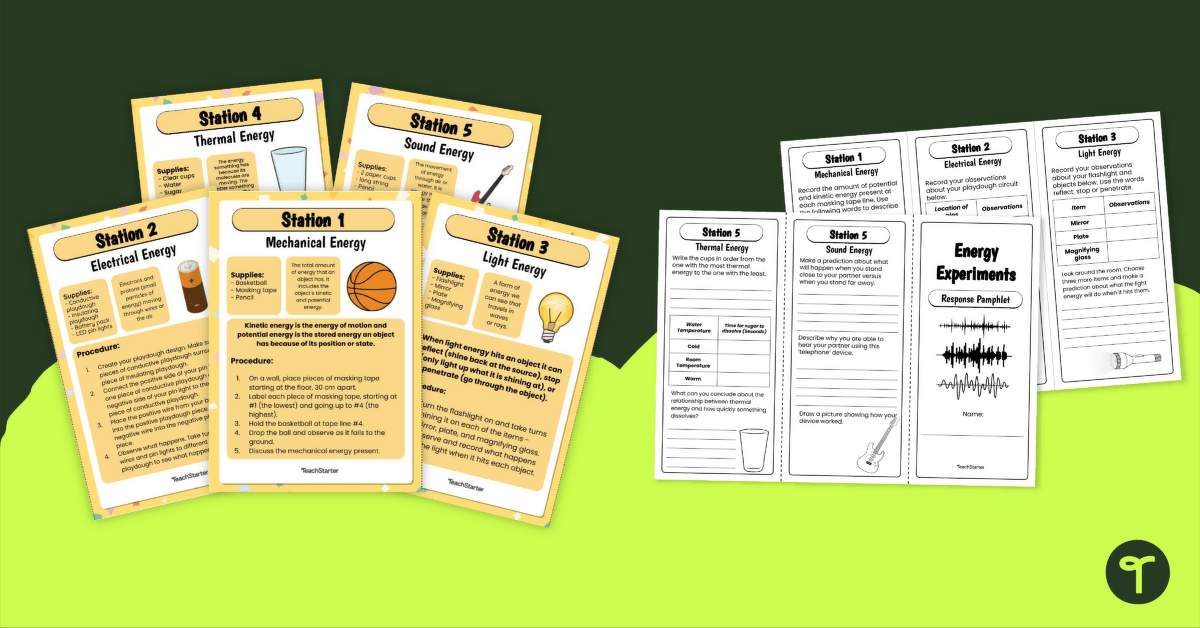

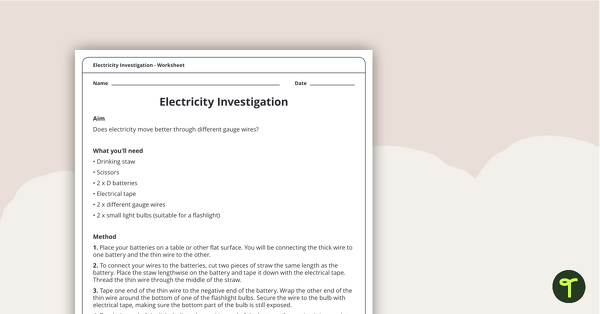
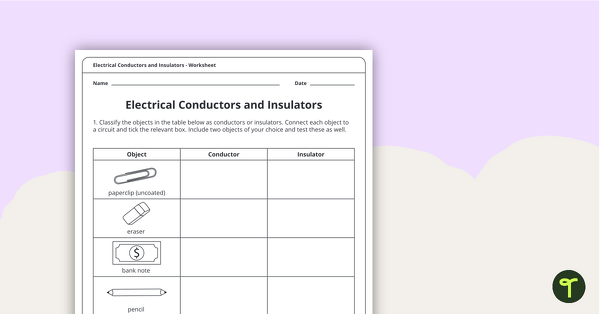
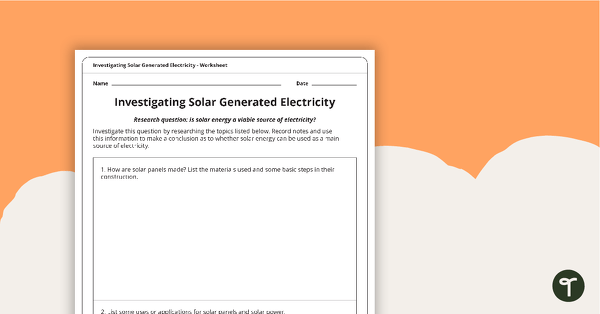
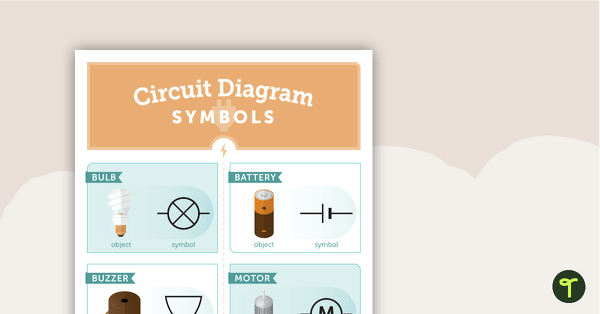
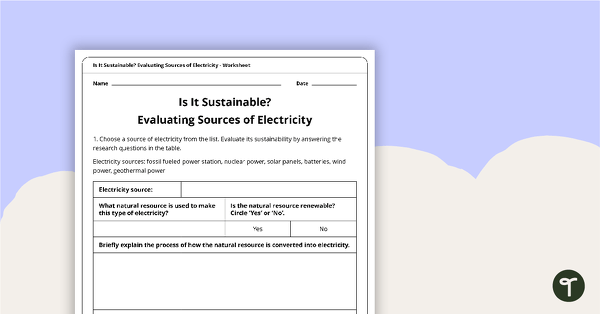
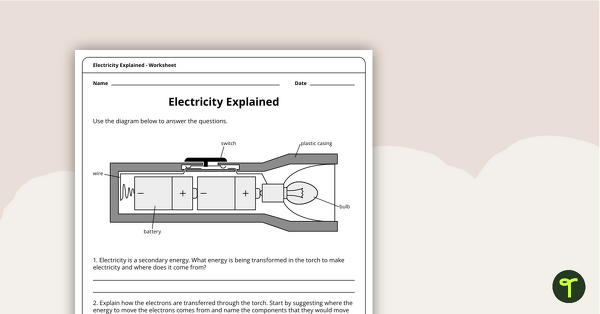
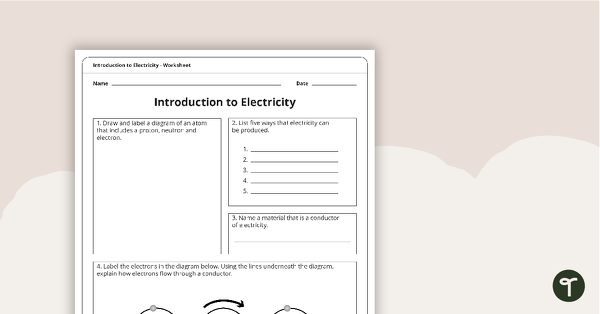
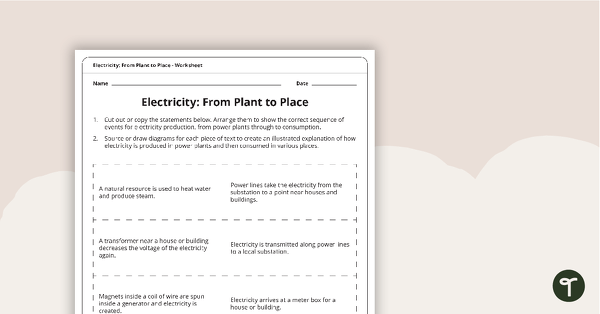
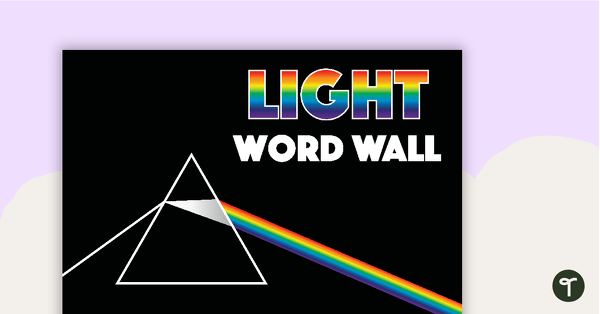
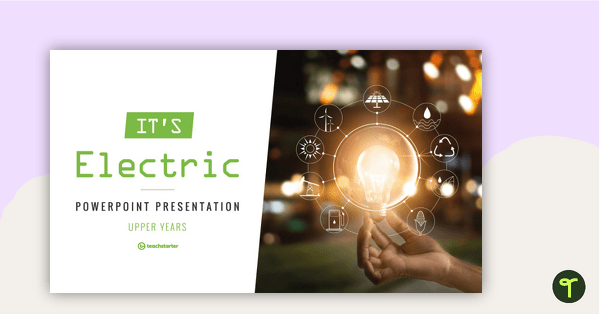
The station numbers are not accurate for this activity.
Hi Emma, Thanks for raising this one. Happy to confirm that it's now been corrected :) Thanks!